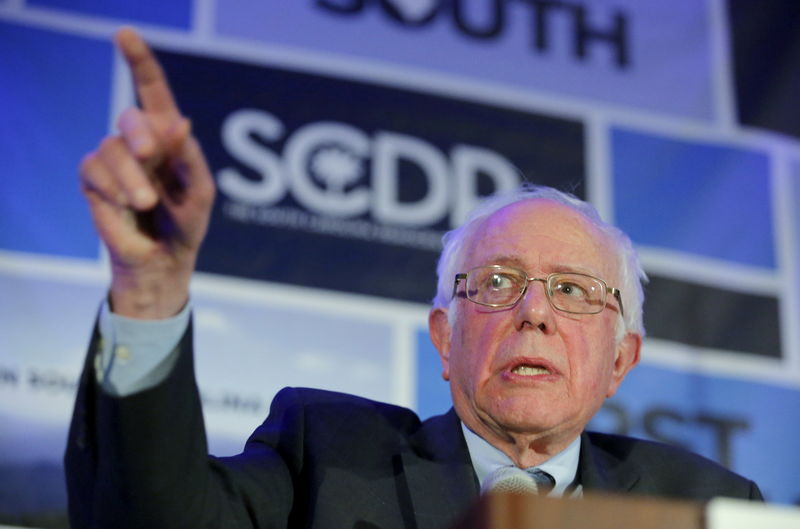By Amanda Becker
CHARLESTON, S.C. (Reuters) - U.S. Democratic presidential candidate Bernie Sanders released details on Sunday evening about his "Medicare-for-all" universal healthcare funding plan and how he would pay for it.
The plan was released hours before Sanders was to square off in a Democratic presidential debate in Charleston, South Carolina, against Hillary Clinton, the former secretary of state and front-runner for the Democratic nomination, and former Maryland Governor Martin O'Malley.
Clinton's campaign had taken aim at Sanders in recent days, saying the U.S. senator from Vermont had not said how he plans to pay for his healthcare plan and that he needed to before the first party-nominating contest in Iowa on Feb. 1.
Sanders said that expanding Medicare, a government-run program that insures the elderly, would save $6 trillion over the next 10 years when compared with the current system, which was established by President Barack Obama's signature healthcare law, the 2010 Affordable Care Act.
Individuals would pay a 2.2 percent "premium" and employers would pay a 6.2 percent payroll tax to fund the healthcare plan. Individuals making $250,000 to $500,000 a year would pay a tax rate of 37 percent and those making more than $10 million would pay a 52 percent tax rate, according to details provided about the plan.
The average annual healthcare costs for a working U.S. family are nearly $5,000 in insurance premiums and another $1,300 on deductibles for care that is not covered, Sanders' campaign said.
Under Sanders' plan, a family of four earning $50,000 would pay $466 to the Medicare program, saving roughly $6,000 per year, the campaign said.
Clinton favors building on the Affordable Care Act, popularly known as Obamacare, and has said Sanders' state-administered plan would jeopardize the healthcare of those with Republican governors. Sanders has said the federal government would intervene in such a scenario.
"It would be a mistake to really thrust our country into another contentious national debate about how we're going to provide quality, affordable healthcare to everybody," Clinton told CNN's "State of the Union" program on Sunday.
Sanders defended his forthcoming proposal on the same CNN program.
"I believe healthcare is a right for all people; it will be politically difficult to achieve, but I will maintain that vision and fight for it," Sanders said.

Sanders last week tweeted a 1993 photo of himself and Clinton signed by the then-first lady, who was waging her own fight for universal healthcare, which thanked him for his commitment to "real access to healthcare for all Americans."